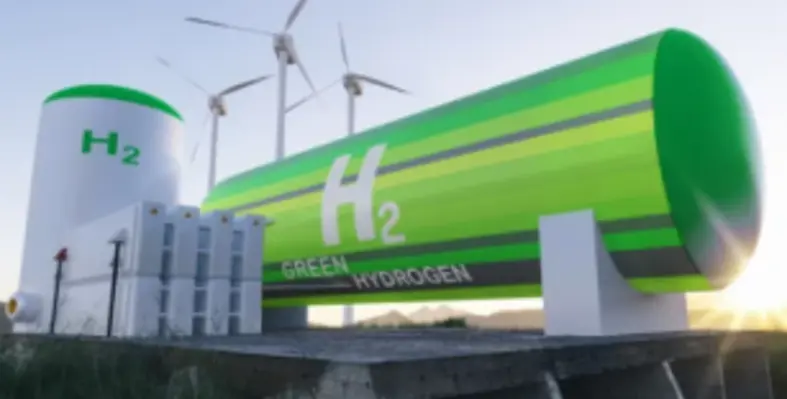The potential of a globalised green hydrogen economy –an economy centred around the trade in hydrogen generated from renewables or low-carbon power – will be explored during the World Future Energy Summit in Abu Dhabi this coming January
Delegates at the Summit, which runs at Abu Dhabi National Exhibition Centre (ADNEC) from 16-18 January and is the leading business event for future energy and sustainability, will deep dive into the realities of a green hydrogen economy, during the event.
Summit-goers will discover the latest technologies driving the hydrogen revolution at the new Hydrogen Innovation Hub, which consists of SMEs and startups, speed networking dedicated to green hydrogen professionals, and live podcast recordings focused on green hydrogen. Attendees will also witness the inaugural Green Hydrogen Summit organised by Masdar in partnership with IRENA and the Atlantic Council.
The Summit will demonstrate Abu Dhabi’s achievements to date and its ambitions to become a global hub for innovation and investment in this sector, while providing a platform for leading hydrogen players worldwide to meet and exchange views.
The importance of green hydrogen to the regional energy mix has never been more prevalent. With the recent hosting of COP 27 in Sharm el-Sheikh, Egypt, not only were new deals brokered to boost green hydrogen capacity, including Elsewedy Electric and ReNew Power signing a partnership to develop a green hydrogen project in Egypt capable of producing 220,000 tonnes per annum of green hydrogen, but country’s such as Chile securing millions in funding to bolster their green hydrogen output.
“If we look at the recent news coming out of COP27 in Egypt from our partners and the industry, there are incredible opportunities happening across the region and internationally around green hydrogen. Our Hydrogen Innovation Hub will serve as an incubator, showcasing key technologies enabling the production, transport, storage, and use of green hydrogen. We hope to expedite collaboration, spur investment, and demonstrate the potential for regional projects, initiatives, and partnerships through this new feature at the show,” explained Leen Alsebai, head of World Future Energy Summit, which is organised by RX Middle East.
Event partner, Masdar, one of the world’s fastest-growing clean energy companies, has also identified Africa as a continent that could capture as much as 10% of the global green hydrogen market, thereby helping to create up to 3.7 million jobs while adding as much as US$120bn to the continent’s gross domestic product. This is according to a landmark report, “Africa’s Green Energy Revolution: Hydrogen’s role in unlocking Africa’s untapped renewables,” issued on the sidelines of COP27 by Masdar and its Abu Dhabi Sustainability Week (ADSW) platform, with analytical support provided by McKinsey & Company.
“Our report provides a blueprint for African nations to harness green hydrogen’s game-changing potential to decarbonize industries, drive sustainable economic growth, and accelerate the deployment of renewable energy across the continent. The grid-connected renewables used for green hydrogen production can feed energy into the grid to provide affordable clean energy to under-resourced areas – notably, in Sub-Saharan Africa, which has an average electrification rate of only 48%,” said Mohammad Abdelqader El Ramahi, Masdar director of Asset Management, Technology and Green Hydrogen.
Yet the hypothesis of whether ‘green’ should be the focus of the hydrogen economy will be scrutinised by a panel of experts at the Solar & Clean Energy Forum as they examine the pros and cons of hydrogen types, why governments and organisations are focussing on green, examples of planned green hydrogen use, and how green hydrogen’s electrolyser market is being scaled.








